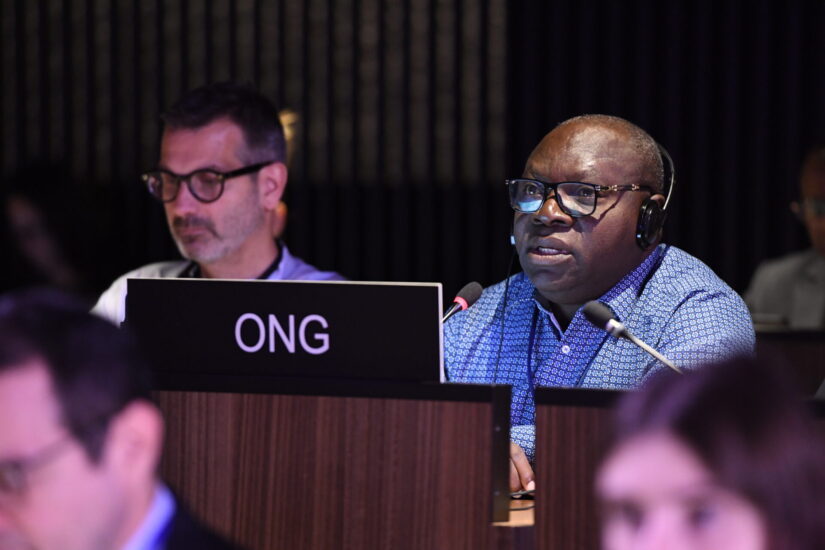
Photo © Cyril Bailleul/Unesco
At the 10th Conference of Parties (COP) to the Convention on the Protection and Promotion of the Diversity of Cultural Expressions, the 158 Parties committed to continuing efforts toward the adoption of a binding protocol on the digital environment. They also agreed to revise the operational guidelines for the implementation of the Convention in the digital environment, in order to better address the growing impact of generative artificial intelligence (AI) and large-scale AI models on cultural and creative industries.
The International Federation of Coalitions for Cultural Diversity (IFCCD) welcomes these two decisions by the Parties, which, on the occasion of the Convention’s 20th anniversary, send a clear signal: while reaffirming the technological neutrality of the Convention, which is meant to apply in all environments, the Parties intend to promote concrete short- and long-term actions to reinforce the implementation of the Convention, particularly in the realm of AI.
The IFCCD, a strong supporter of the addition of a protocol to the Convention, intends to closely monitor and contribute to the Parties’ work, who will be called upon in spring 2027 to consider a study on the feasibility and technical and legal aspects of such a protocol, as well as other possible legal options. Should the Parties decide to move forward at that stage, a protocol could be adopted in 2029, from which point a ratification campaign would be expected to begin.
Regarding the revision of the operational guidelines, the IFCCD sees this as a key opportunity for the Parties to reaffirm the core principles of the Convention, while also adapting them to respond to the challenges posed by the digital environment and AI, such as:
- The principle of protecting and promoting the diversity of cultural expressions
- The principle of assessing the impact of algorithmic and editorial recommendations
- The principle of transparency regarding the use of data by generative AI systems
- The principle of the uniqueness of human creativity
- The principle of equitable and inclusive access
- The principle of fair remuneration for creators and rights holders
- The principle of improving the socio-economic conditions of creators and ensuring the financial viability of local and independent cultural ecosystems
To be effective, the revision of these guidelines must be accompanied by concrete commitments from the Parties for their implementation, as well as transparent reporting. The IFCCD also calls for the monitoring mechanism associated with the operational guidelines on the digital environment to be strengthened, to enable rigorous assessments and ensure the effectiveness of their implementation.
The IFCCD also welcomes the reaffirmation by the Parties of the importance of Article 16 on preferential treatment, which aims to strengthen North-South and South-South cooperation and the balanced exchange of cultural goods and services—a provision that remains under-implemented to this day. The IFCCD also highlights the call to increase the Secretariat’s financial capacities to implement the action plan of the Intergovernmental Reflection Group on Preferential Treatment, as well as the recognition of the need to integrate these issues into digital-related challenges.
Finally, the IFCCD welcomes the Parties’ decision to henceforth hold the Civil Society Forum during the session of the Intergovernmental Committee preceding the COP. This recommendation, supported by the IFCCD, could help address current governance gaps. It could notably allow civil society organizations to hold more inclusive discussions and adopt genuine consensus on a limited number of issues. The IFCCD remains convinced that the richness of civil society contributions lies in the diversity of actors working to implement the Convention, who each bring the unique perspectives of the groups they represent.
- Related publications
-